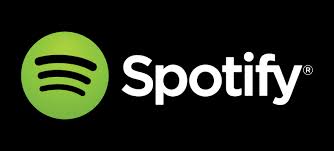At a recent promotion for the astronomically priced “Beats” by Dre, the grubby pop sensation Ed Sheeran spoke on how the Internet ‘changed the game’ and transformed the way in which the world consumes music:
“The internet has made music more disposable. When I started buying records, just before the internet was big, I got two or three records a year. I’d buy one and I’d rinse it. I bought four or five albums last week and listened to them and I’ll buy four to five albums next week and listen to them. I’m not rinsing anything, I listen to an album once or twice and then I’m off to the next thing – that’s even if I really like it. It’s more disposable now.”
Sheeran seemed to be suggesting that music has lost a preciousness or value it once had. I suppose he’s right. It used to be quite a big deal, purchasing an album for roughly €20 from the local Golden Discs and listening to it incessantly in your bedroom for the next week. Yet, in 2014 most of us don’t buy albums, let alone actually purchase any of the music we listen to. Subscription services like Spotify which allow access to unlimited volumes of music have replaced the need to buy and the ability to create playlists means you can forget about shelves stacked with CDs and compile all your favourite tracks in the one place.
Thank you piracy?
Most of us nonchalantly went with the flow during this drastic shift in power from industry to the consumer.
Spotify was originally founded in response to the popularity of Pirate Bay. Both companies were born in Sweden and, according to the official Spotify website, their initial goal was to “build a service which was better than piracy” in order to “convince people to stop illegal file-sharing, and start consuming music legally again.”
This emphasises the point that streaming services were created as a response to the outrageous amounts of piracy which were occurring in the early 2000s. Yet without these enormous rates of illegal file sharing there is no way streaming would have kicked off the way it did and allow the average person to legally afford and enjoy the quality and quantity of the music which they do today.
Not only has streaming changed the way we consume music but also what we’re listening to. The big record labels like Sony and Universal have lost sizable amounts of revenue in the last 10 years and are scared stiff to take risks on quirky, obscure artists. Instead they mostly pump out manufactured pop “hit” after “hit” and target them towards young teens. Brett Anderson lead singer of Suede told the music mag NME: “The charts today are rubbish. There’s less money so record companies play safe. They can’t afford to nurture something interesting so music is made by committee.”
The industry has prioritised making what sells over good music and the consequences have been that we have a Top 10 singles chart dominated by a particular kind of music, mostly ‘dance pop’ songs.
But do we really care?
Yet it’s not all doom and gloom for artists making music indifferent to the status quo. If Queen or The Rolling Stones were around today they’d probably be beaten to number one by a Justin Bieber feat. 1D feat. Pitbull track, but, if truth be told, it really doesn’t matter. In 2014, having a track at number one doesn’t have the same prestige as it did in 1985. Top of the Pops is long gone and streaming has given people the independence to listen to what they want when they want, in ignorance of the gunk being spewed out by the record labels.
Streaming has given the average person the platform to experience and explore music like never before. We are in a golden age of music where the consumer is fully in the driving seat. You can be sure the industry are already plotting schemes to increase streaming prices at some stage in the future but we must be robust; we, the consumers, have taken control of music and we’re not letting go.







